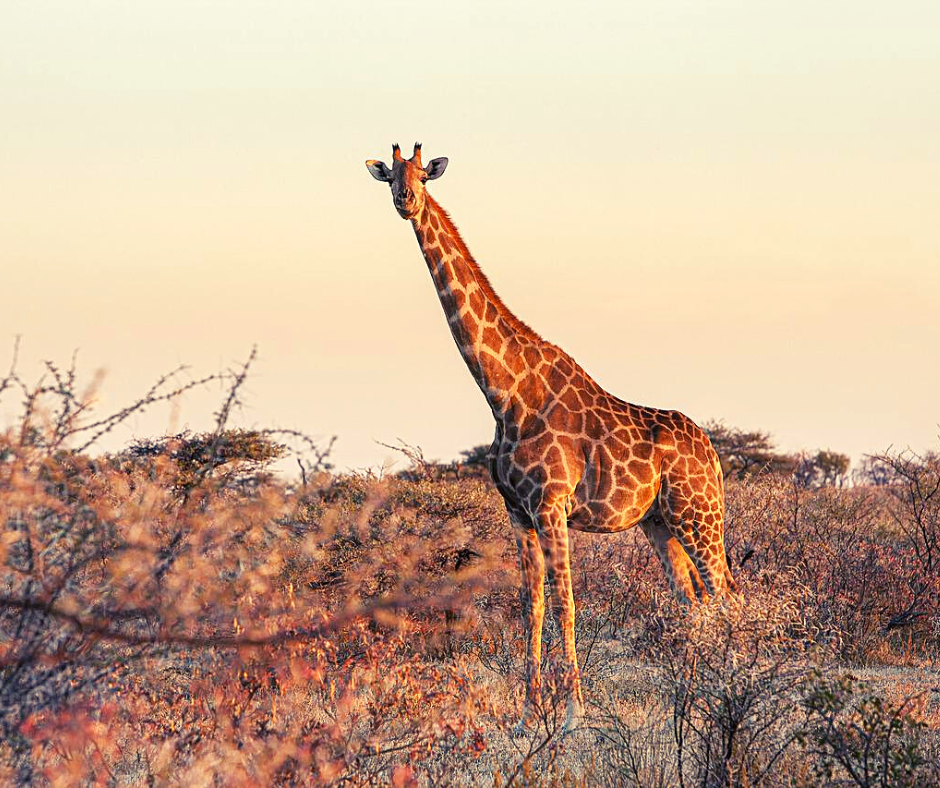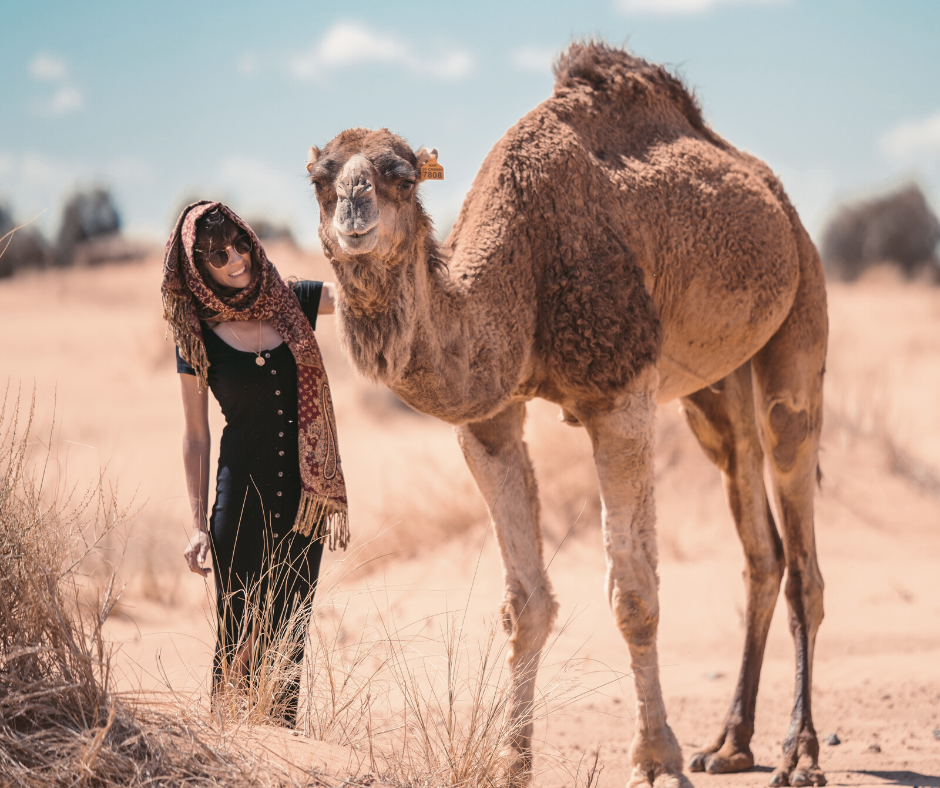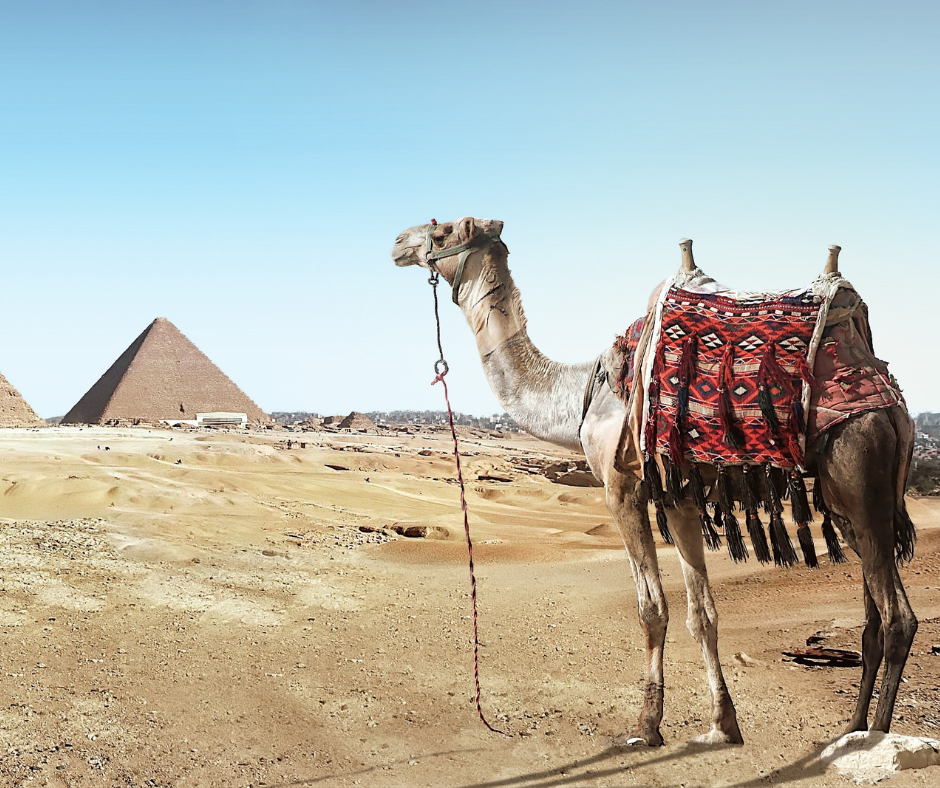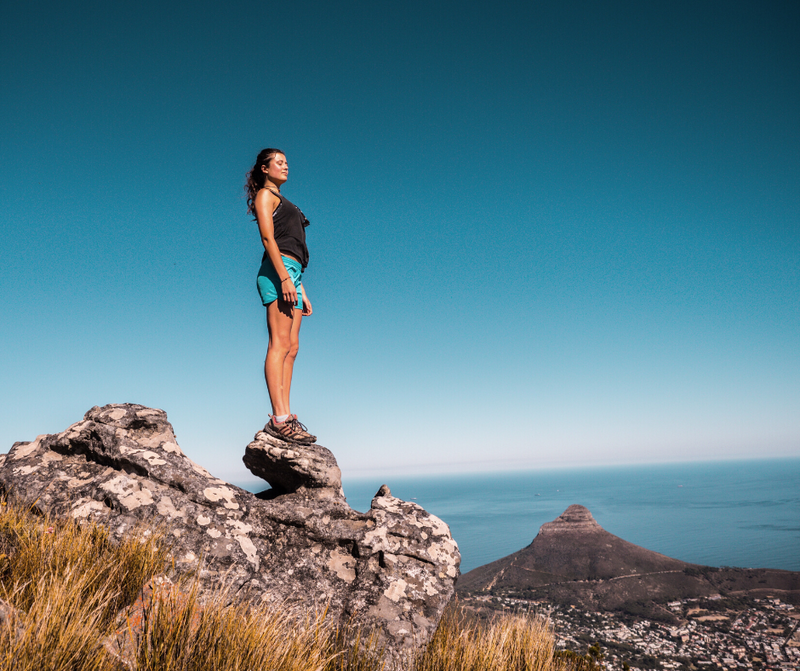From hip city life in Cape Town to the endless expanses of the South African savannas, the southernmost part of Africa offers plenty of adventures.
The country has more than 290 conservation parks and is home to almost 300 mammal species, about 860 bird species, and 8,000 plant species. The annual sardine run (May to July) is the most significant migration on the planet and attracts other incredible species like whales, sharks, and dolphins.
All over the country, you find the enormous political, humanitarian, and social footsteps Nelson Mandela formed for the country.
Despite some obstacles, South Africa became a mysterious magnet for digital nomads.
🌱 Travel health insurance for South Africa
🇿🇦 Entry requirements for South Africa
- Visa: Visitors with passports from countries including the United States, the United Kingdom, Canada, and many European countries are exempt from visas. If your country of citizenship is not on the exemption list, you must apply for a tourist visa ahead of time. The application is relatively straightforward, and the best place to start is at your nearest South African embassy or consulate.
✈️ How to get to South Africa
- Plane: There are many flights from Europe, North America, and Asia to several cities in South Africa. Flights tend to be more expensive in December and January compared to lower prices in April and May. The most important international airports are Johannesburg (JNB), Cape Town (CPT), and Durban (DUR). The average flight duration from Europe to South Africa is 11 hours.
🚌 Public transport
- Uber: Uber is fast, reliable, safe, and relatively affordable. From the airport to the city center, a distance of 20 km, will usually cost around 11 Euro (R186)
- MyCitTi: The MyCiTi bus system is a safe and affordable way of getting around Cape Town. Before hopping on the bus, you must buy a myconnect card, as cash is not accepted on board. You can buy the card for R35 (2,50 Euro) from a MyCiTi station kiosk.
- Taxi: Most meter charges a rate of between R20 to for short trips R50 (within a 4 km radius) and then per kilometer. Metered and authorized taxis provide transport to and from the biggest airports. Travel time between Cape Town Airport and downtown is about 20 minutes for around R260 and R320 (16-19 Euro). In Johannesburg, the duration will be about 30 minutes for R650 (38 Euro).
- Minibus: Minibus taxis are the most common form of public transport in Johannesburg and pick up passengers at various terminals and the side of the road. Due to an informal route system, it is a bit tricky to get the right one for your destination.
🏡 How to find a place
Depending on how you want to find a home, supported by a local agent or all researched by yourself, you should ensure that some security measures like alarm systems, security gates, and burglar bars are in place while viewing a potential home. If you prefer being supported by a rental agency, check out gumtree or Pam Golding, a reputable real estate agency from South Africa.
- Private Property: Here, you can find apartments all over South Africa, ranging from small budgets to luxurious mansions. From super luxury arranged apartments to cheaper, unfurnished accommodation which starts at around 580 Euro per month you might find a place here.
- Property24: An excellent site for expats searching for an apartment. You find modern, fully furnished 1-bedroom apartments in the city center of Cape Town city center for about 650 Euros per month.
- Movingtosouthafrica.org: This site is focused on rentals in Johannesburg. When searching for accommodation in Johannesburg, send them a request form with your demands, and their staff tries to do the magic. Due to quiet luxury lofts and family houses, prices for a monthly rental start at 2,300 Euro.
- Work Wanderes: A retreat offering accommodation, coworking, and community in Cape Town. You need to apply for a spot to join the group of 10 people. Cost per month is between 2,000 and 2,300 Euro.
🏘 Where to stay in Cape Town
Depending on your risk-averseness or need for security, you should check out apartments within the following districts. Feeling safe at home is priceless, so I highly recommend investing in more expensive apartments with proper security systems and fences.
- Cape Town city center/Bo Kaap: Multicultural and historic Bo-Kaap can also be a good choice for living. You are surrounded by coworking spaces, modern apartments, and a buzzing quarter, with all you might need within walkable distance. The cost for a fully furnished, 1-bedroom apartment is between 800 and 1,000 Euro per month. Still, be aware that the city center is a magnet for pickpockets and scammers.
- Sea Point: The neighborhood Is more expensive, with rent starting at around 1,200 Euro per month within the low season. But depending on your transportation, you might feel safer living here. Here you find cafés and restaurants and a family-friendly atmosphere.
- Camps Bay: This is one of the most expensive districts in Cape Town with all its 5-star hotels and gourmet beachfront restaurants. Rent for a fully furnished 1-bedroom apartment in Camps Bay will likely start at 1,000 Euro per month, but you have whisky bars, craft beer, and live bands within walking distance.
🧑🏻💻 Where to work from in Cape Town
Coworking spaces
- Work Wanderes: A retreat offering accommodation, coworking, and community in Cape Town. You need to apply for a spot to join the group of 10 people. The cost per month is between 2,000 and 2,300 Euro.
- Workshop17: Having opened its 3rd coworking space in Cape Town, Workshop17 can be found in Waterfront, Gardens, and Newlands districts. In all areas, Workshop17 offers flexible work and meeting spaces, open 24/7, modern interior and ergonomic working solutions, and kitchen and catering service. Costs are around 150 Euro for a month's membership.
Coffee shops
- Four & Twenty Café: Located in Wynberg, this eatery offers everything tasty bakeries and freshly roasted coffee. During load shedding, you can find a perfect timeout or continue working here.
- The house of machines: located in the city center of Cape Town, this café-ish, and bar-styled restaurant is easy to reach and find. Besides various food and drink menus, you can enjoy open mic and entertainment in the evening. Internet connection is decent and tables are interiors are suitable for working.
- Folk Café: Located in St. James, a 30 min car ride from the city center, you find Folk Café. Here you get served fresh ethical ingredients, either vegan, vegetarian, or free-range chicken and grass-fed beef. Due to a generator, you can continue working even with load shedding.
🏘 Where to stay in Johannesburg
Depending on your risk-averseness or need for security, you should check out apartments within the following districts. Feeling safe at home is priceless, so I highly recommend investing in more expensive apartments with proper security systems and fences.
- Northern Suburbs: Home to many middle and upper-middle-class families, Johannesburg’s Northern Suburbs are decent and safe. Sunninghill, Lonehill, and Fourways are peaceful areas full of security estates and a large ex-pat community. Rosebank and Parktown are next to Johannesburg Zoo. Many bars, shops, and restaurants are emerging in Rosebank.
- Melville: Melville is a trendy, bohemian district where many students and ex-pats live. Walking around during the day is generally safe, but during nighttime, you should be aware of criminals, especially around the edges of the restaurant and bar areas.
🧑🏻💻 Where to work from in Johannesburg
Coworking spaces
- Workshop17: Choose between 3 different locations, The Bank, Firestation, and West Street. Workshop17 is a reliable partner for providing workspaces for digital nomads. Decide if you want to overlook the urban forest at Firestation, be surrounded by Sandton's business spirit at West Street, or get Manhattan-like vibes at the Bank in Rosebank. All locations offer excellent infrastructure, high-speed internet, and several meeting or private rooms for around 150 Euro per month.
- Mesh Club: Located in Rosebank, you get a 1-month-Mesh-membership at the Mesh Club, which comes with a workspace, fast internet, and fitness classes. Costs are 233 Euro per month. The space offers gastronomy, such as restaurants, a café, and a bar too.
- The workspace Blackheath: The coworking Blackheath is located in one of Randburg’s most vibrant commercial districts, just off Beyers Naude Drive. The space provides elegant, modern coworking and serviced or semi-serviced office spaces on flexible terms for 50 Euro per week. Membership includes high-speed internet, an outdoor relaxation area, and covered parking.
- The Link by WeWork: is located in Rosebank, Oxford Road, and offers space over 6 floors. WeWork members enjoy art-filled lounges, bright and airy conference rooms, and sleek private offices. Memberships are available through the WeWork membership.
Coffee shops
- Breezeblock: Brixton's neighborhood café is a beautiful, owner-runed café with an arty interior and a cozy courtyard. The food menu lists a vast breakfast variation and coffee specialties with blends roasted in Johannesburg. The menu also offers cold dishes like salads, burgers, and wraps. Tables and chairs and wifi are decent for working.
- Salvation Café: Within 44 Stanley, Milpark, you will find this gem of a café. The eatery is a down-to-earth café that preaches the soul of good food, food that is fresh and honest. Free wifi is available.
🚊 How to travel around South Africa
- Car rental: Car rentals are generally inexpensive for road trips and perfect for weekend getaways. Depending on your destination, you can rent everything from budget cars to high-quality premium SUVs and 4×4 vehicles for competitive rates compared with other countries.
🎖 Must see
- Safari: Aquila is within 2 hours drive, the closest Big 5 game reserve to Cape Town that offers an authentic African safari experience. Depending on your arrival or schedule, you can decide to do a half-day or full-day safari. Besides self-driving, you can also book. A standard (bus of 10) or private transfer from Cape Town to the game reserve. A half-day evening and guided safari cost around R1550 (90 Euro) per person. The Kruger National park is a 4-hour drive from Johannesburg. The park offers a well-developed tourist infrastructure which is perfect for self-guided tours. The price for a one-day ticket is R440 (26 Euro) per adult. You can also find several accommodations like Jock Safari Lodge or Buhala Lodge if you prefer an overnight stay.
- Wine Tasting Tour: The Constantia Wine Route is a day in Cape Town where you can visit some of Cape Town’s finest vineyards, wineries, and wine-making facilities. If you don’t have time to visit the Cape Town wine regions but are looking for a wine tasting not too far, you can see and explore the wine routes of the Constantia Valley.
- Beach Day: Discover Cape Town's beaches, which are known for powdery white sand, for example, Camps Bay Beach. Camps Bay can be pretty busy during summertime (December to March). If you’re looking for a bit of peace, consider driving 10 minutes south along scenic Victoria Road to Oudekraal Beach instead.
- Robben Island: Just off the coast of Cape Town, you find Robben Island. This fantastic place served as a prison from mid-1960 to 1991. Most inmates, including Nelson Mandela, were black men captured because of political offenses. Mandela was held at Robben Island prison for 18 of his 27 years behind bars in South Africa. The last prisoners were released in 1991. Since 1999 Robben Island has been a UNESCO World Heritage. The entrance fee for adults is R600.
- Apartheid Museum: This unmissable place in Johannesburg deserves a visit. Besides an entire exhibit on Nelson Mandela, you will get the chance to dive deep into the South African history of apartheid. You can easily spend 3-4 hours with the complex. Admission is R100, and the Museum is easily reached by busses or taxis.
- Pretoria: 55 km and less than one hour's drive from Johannesburg you will find a city from a different planet. Jacaranda City, Pretoria is packed with beautiful gardens, blooming flowers, and trees. You can get to Pretoria quickly on the Gautrain or by car.
💡 Good to know
- Big Five: Big Five is the nickname for the elephant, lion, buffalo, leopard, and rhino, which are the main attractions on every African safari.
- Braai: Braai (Dutch for a roast) is the South African BBQ style. You find public grill stations everywhere in the country.
- Currency: The official currency in South Africa is Rand (ZAR). 1 Euro converts to 16,82 Rand.
- Cost of living: If you’re traveling alone, you can make a comfortable living in the bigger cities, like Johannesburg, Cape Town, or Durban, for around 1,500 Euro per month.
- Load shedding: There are power cuts from time to time to prevent electrical system blackouts. These rolling blackouts deprive different city areas of electricity at 2.5 hours intervals throughout the day and night. Get informed by downloading the app EskomSePush. Or check out the city's electricity services: Johannesburg and Cape Town.
- Climate: South Africa is a relatively dry country. The average summer temperature in Johannesburg is 30°C in summer. In winter, night temperature can drop to freezing or even lower in some places.
- Community: If you are seeking interaction, you should check out the expat groups of Cape Town and Johannesburg on Facebook.
- Driving: Cars in South Africa drive on the left-hand side of the road, which means that the car driver’s seat is on the right-hand side of the car.
- Safety: Generally speaking, South Africa has a high level of crime. Most of the time, when tourists or expats are involved, crimes are petty theft, criminals impersonating the police, street beggars and pickpocket thieves, ATM and credit card theft, and apartment or tour guide scams. Make sure that your valuables are not visible and leave your Rolex at home (Go here to find out what's your home country). Never leave your stuff unattended when you go to the bathroom while sitting in a restaurant. Crime significantly increases after dark in major city centers and townships. At the same time, when waiting in a car, for example at traffic lights or junctions, you should lock the car. Call the police (10111 or 112 from a mobile phone) at the first sign of danger. My rule in South Africa was: Never to walk alone after sunset. If this feels too strict for you, have the following areas in mind to be avoided.
- Johannesburg: Hillbrow, Alexandria, Yeoville, Joubert Park, Berea.
- Cape Town: Avoid walking from downtown hotels to the waterfront.
- Durban: Beachfront and Victoria Wharf. - Sim card: You can easily buy a pre-paid sim card at any grocery store or cellphone store. Vodacom is the national operator, but other like MTN has the same coverage but are slightly cheaper. You get a sim card with 10 GB for 149R (8,78 Euro).
- Internet: When it comes to internet speed, South Africa ranks 61 among a comparison of 100 countries. The median internet speed is 34.37 Mbps download and 28.40 Mbps upload for fixed broadband. Be sure to ask your accommodation provider for a speed test to ensure you can be productive.
- Nightlife: The best place to start a good night in the town is on Long Street in Cape Town or Melville in Johannesburg.
🚧 What to avoid
- Scammers: Do not accept help from anyone at an ATM. Avoid being taken in by stories from beggars in main tourist areas.
- Getting lost: Don’t stroll around without knowing where to go. It is one thing to get lost in Chiang Mai (Thailand) or Hoi An (Vietnam), it is another story in Cape Town or Johannesburg.
- Unlocked car: Don't drive around with your car doors unlocked or with your windows down. No no.
- Being scared now: Don't let the country's dangerous reputation deter you. You do have to be aware, yes. But by following the rules and guidance, you should be able to fully enjoy the beauty of South Africa.
- Kruger only: Kruger Park isn’t the only safari park worth visiting. It's one and a beautiful one, but plenty of reserves exist.
- Forgetting to tip: Don’t forget to tip. Locals generally round up to the next dollar.
🚴🏻♀️ How to stay healthy
Stay healthy
- Jogging: Famous in Cape Town for Jogging is the 6km riverwalk of the Atlantic Seaboard or the PwC Bike Park in Johannesburg.
- Hiking: During a stay in Cape Town, you should hike to the top of Table Mountain and embrace the panorama view. I promise it’s worth the 3 hours of hike. Also worth the aching muscles is the 4.3 km route to the top of Lions Head.
- Surfing & kitesurfing: Cape Town is supposed to be one of the best surf locations. Within 20 min. On the car ride, you can find a vast surfing community in Muizenberg, a small beach town suburb, or Bloubergstrand. Equipment can be hired.
- Trail running & biking: Located in Bryanston, 30 min car drive from Johannesburg, you will find the Cycle Lap Bike Park. The bike park comprises 20 hectares of land and 13km of trails. You can hire helmets and bikes for about R130.
- Yoga: Practicing yoga will have a positive impact, mentally and physically. Whether you try hotpot yoga in Johannesburg or a vinyasa flow in Cape Town – it will serve its best.
Health risks
- Water quality: You can drink tap water in South Africa.
- Air quality: The air quality in Austria is moderate.









